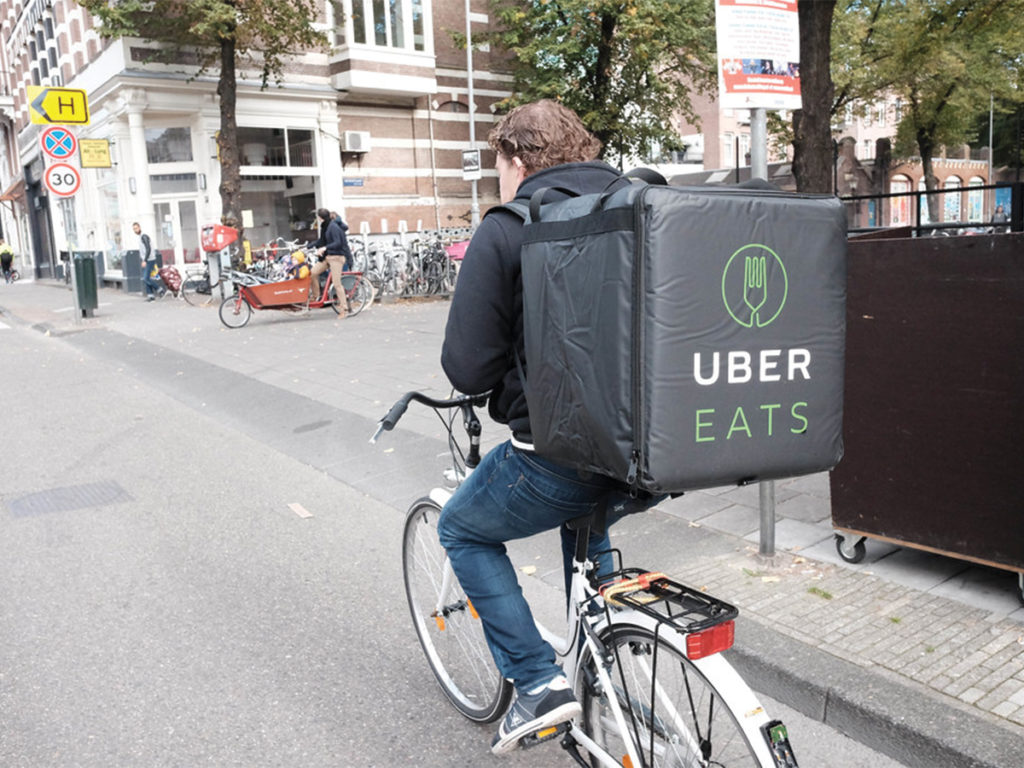
California restaurants are on the verge of experiencing a change in operations with the proposal of California Assembly Bill 2149 (AB 2149), also known as the Fair Food Delivery Act. AB 2149 was proposed by California State Assemblywoman Lorena Gonzalez this month and would require food delivery apps to not only share customer information with restaurants but reach an agreement with said restaurants before adding them onto the app.
The current tech-driven society, which calls for more comfort and convenience, is driving out restaurants. In this modern world comprised of advanced technological innovations, restaurants are placed at a significant disadvantage. They are easy targets for big corporations and businesses. Restaurants, regardless of their size, are experiencing a decrease in both overall profit and patrons. This can be attributed to the fact that delivery apps are taking commissions from the restaurants, which adds up over time, ultimately reducing the overall profit of the restaurant. In addition, they do not share customer data with restaurants. Customer data is crucial to restaurants because it helps them easily accommodate and change some aspects of their restaurant to satisfy customers. AB 2149 will positively affect profits earned by restaurants because the new bill allows restaurants to make adjustments based on customers’ needs.
The new bill will increase overall profits for restaurants. The founder of the restuarant Mulberry & Vine, Michelle Gautheir, explained to the New Yorker that, “We know for a fact that as delivery increases, our profitability decreases.” For each delivery order, Mulberry & Vine third party platforms receive between 20 to 40% of the revenues. The restaurant’s overall profit margin has shrunk by a third, and Gauthier believes this is because of an increase in delivery orders. If usage of these delivery apps continue at current rates, analysts at Morgan Stanley believe delivery transactions could make up 40% of all restaurant sales, which is damaging to the restaurants they work with.
Delivery apps also pose challenges for restaurants in ways that are indirectly related to profit. For instance, Joe Hargrave, a co-owner of Tacolicious, stated that his restaurant can’t afford to ignore delivery apps. They attract customers to the restaurant, but their usage results in a whole new set of challenges for business owners. Restaurants must now answer questions like where they will store the compostable trays, how the food will travel and how far it will go before it spoils.
The lack of communication between customers and the restaurants is another major challenge for owners. Communication is one of the core aspects of a restaurant’s business because it develops the relationship between customer and establishment. Currently, restaurants have limited or no information of customers’ needs and preferences if said customer orders using the app, because the app companies are not sharing that valuable information with owners. This issue would be solved under AB 2149 as delivery apps would be obligated to share information with the restaurants, ultimately increasing their profits if they do decide to opt in with the apps. The information includes customers’ email addresses, demographics and reviews for particular dishes.
Another problem restaurants face is the fact that they are not given the option to opt out of delivery apps because they are not notified when they are added onto the platform. The decision to add restaurants is at the discretion of the app companies. With the new bill in place, app companies will have to ask permission from restaurants before they add them onto the delivery list.
Big delivery app companies are sure to oppose the assembly bill because it will affect their profits. Companies like GrubHub maintain that the revenue they bring restaurants is “incremental.” They also argue that delivery orders are a form of marketing, exposing potential new customers who might convert to lucrative in-restaurant patrons. These arguments made by GrubHub can not be deemed completely wrong, but it would be right to say that their “incremental” argument is invalid if it starts to negatively affect restaurants.
Delivery apps pose a serious threat to restaurants. They take advantage of these businesses by keeping customer information to themselves and adding restaurants onto their delivery app list without permission. This results in lower profits for restaurants and eventually drives them out of the market. If Assembly Bill 2149 is passed, restaurants will soon earn higher profits.








